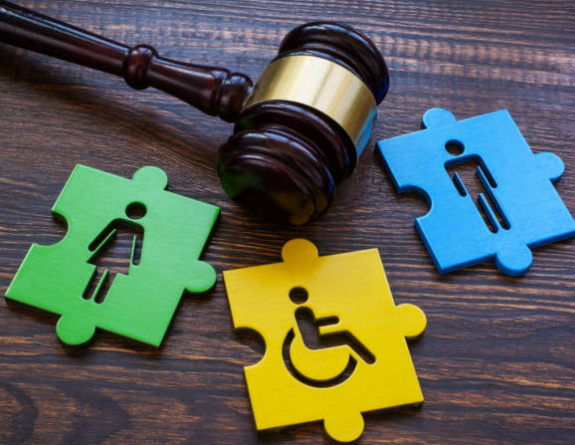- Homepage
- Personal Injury Lawyer
- Navigating the Legal Maze: How a Personal Injury Lawyer Can Secure Your Rights
Navigating the Legal Maze: How a Personal Injury Lawyer Can Secure Your Rights
In the aftermath of an accident or injury, individuals often find themselves thrust into a complex legal landscape filled with pitfalls and challenges. From navigating insurance claims to understanding complex legal procedures, the road to securing compensation for personal injuries can be daunting. This is where the expertise of a personal injury lawyer becomes invaluable.
Understanding Personal Injury Law
Personal injury law encompasses a wide range of cases, including car accidents, slip and falls, medical malpractice, and workplace injuries, among others. These cases typically involve seeking compensation for physical, emotional, and financial damages resulting from the negligence or intentional actions of another party.
The Role of a Personal Injury Lawyer
A personal injury lawyer serves as an advocate for individuals who have been injured due to the negligence of others. Their primary goal is to protect the rights of their clients and secure fair compensation for their losses. Here’s how they can help:
- Legal Expertise: Personal injury lawyers possess a deep understanding of relevant laws and regulations. They can assess the circumstances of your case and determine the best legal strategy to pursue.
- Investigation and Evidence Gathering: Building a strong case requires thorough investigation and gathering of evidence. Personal injury lawyers have the resources and expertise to collect evidence such as witness statements, medical records, and accident reports to support your claim.
- Negotiation with Insurance Companies: Dealing with insurance companies can be intimidating and overwhelming. Personal injury lawyers are skilled negotiators who can engage with insurance adjusters on your behalf to secure a fair settlement.
- Litigation Representation: In cases where a settlement cannot be reached, a personal injury lawyer will represent you in court proceedings. They will present your case persuasively to a judge and jury, advocating for your rights and seeking maximum compensation.
Securing Your Rights
Working with a personal injury lawyer is crucial for protecting your rights and maximizing your chances of a successful outcome. Here are some key ways they can help secure your rights:
- Ensuring Fair Compensation: Personal injury lawyers understand the full extent of damages you may be entitled to, including medical expenses, lost wages, pain and suffering, and future medical needs. They will fight to ensure you receive fair compensation for all your losses.
- Protecting Against Legal Pitfalls: The legal process can be complex, with strict deadlines and procedural requirements. A personal injury lawyer will ensure that all paperwork is filed correctly and that you meet important deadlines to avoid jeopardizing your case.
- Providing Peace of Mind: Dealing with the aftermath of an injury can be stressful and overwhelming. By entrusting your case to a personal injury lawyer, you can focus on your recovery knowing that your legal rights are being protected.
Frequently Asked Questions (FAQs) About Personal Injury Lawyers
1. What types of cases do personal injury lawyers handle? Personal injury lawyers handle a wide range of cases, including car accidents, slip and falls, medical malpractice, workplace injuries, product liability, and wrongful death, among others.
2. How do I know if I need a personal injury lawyer? If you have been injured due to the negligence or intentional actions of another party and are seeking compensation for your losses, it is advisable to consult with a personal injury lawyer. They can assess the merits of your case and advise you on the best course of action.
3. How much does it cost to hire a personal injury lawyer? Many personal injury lawyers work on a contingency fee basis, which means they only get paid if you receive compensation for your injuries. Typically, their fee is a percentage of the settlement or court award. Consult with the lawyer to understand their fee structure before proceeding.
4. How long do I have to file a personal injury claim? The statute of limitations for filing a personal injury claim varies depending on the state and the type of case. It is crucial to act promptly and consult with a personal injury lawyer as soon as possible to ensure you do not miss any deadlines.
5. Will I have to go to court if I hire a personal injury lawyer? Many personal injury cases are resolved through settlement negotiations with insurance companies, avoiding the need for court proceedings. However, if a fair settlement cannot be reached, your lawyer will represent you in court and advocate for your rights.
6. What compensation can I expect to receive in a personal injury case? The compensation you may receive in a personal injury case depends on various factors, including the extent of your injuries, medical expenses, lost wages, pain and suffering, and future medical needs. A personal injury lawyer will work to ensure you receive fair compensation for all your losses.
7. How long will it take to resolve my personal injury case? The timeline for resolving a personal injury case can vary depending on factors such as the complexity of the case, the extent of your injuries, and whether the case goes to trial. Your personal injury lawyer will provide you with an estimate of the timeframe based on the specifics of your case.
8. Can I handle my personal injury claim without a lawyer? While it is possible to handle a personal injury claim without a lawyer, it is not advisable. Personal injury law is complex, and insurance companies often try to minimize payouts to claimants. A personal injury lawyer can protect your rights, navigate the legal process, and maximize your chances of obtaining fair compensation.
FAQS
1. What types of cases do personal injury lawyers handle?
Personal injury lawyers handle a wide range of cases, including car accidents, slip and falls, medical malpractice, workplace injuries, product liability, and wrongful death, among others.
2. How do I know if I need a personal injury lawyer?
If you have been injured due to the negligence or intentional actions of another party and are seeking compensation for your losses, it is advisable to consult with a personal injury lawyer. They can assess the merits of your case and advise you on the best course of action.
3. How much does it cost to hire a personal injury lawyer?
Many personal injury lawyers work on a contingency fee basis, which means they only get paid if you receive compensation for your injuries. Typically, their fee is a percentage of the settlement or court award. Consult with the lawyer to understand their fee structure before proceeding.
4. How long do I have to file a personal injury claim?
The statute of limitations for filing a personal injury claim varies depending on the state and the type of case. It is crucial to act promptly and consult with a personal injury lawyer as soon as possible to ensure you do not miss any deadlines.
5. Will I have to go to court if I hire a personal injury lawyer?
Many personal injury cases are resolved through settlement negotiations with insurance companies, avoiding the need for court proceedings. However, if a fair settlement cannot be reached, your lawyer will represent you in court and advocate for your rights.
6. What compensation can I expect to receive in a personal injury case?
The compensation you may receive in a personal injury case depends on various factors, including the extent of your injuries, medical expenses, lost wages, pain and suffering, and future medical needs. A personal injury lawyer will work to ensure you receive fair compensation for all your losses.
7. How long will it take to resolve my personal injury case?
The timeline for resolving a personal injury case can vary depending on factors such as the complexity of the case, the extent of your injuries, and whether the case goes to trial. Your personal injury lawyer will provide you with an estimate of the timeframe based on the specifics of your case.
8. Can I handle my personal injury claim without a lawyer?
While it is possible to handle a personal injury claim without a lawyer, it is not advisable. Personal injury law is complex, and insurance companies often try to minimize payouts to claimants. A personal injury lawyer can protect your rights, navigate the legal process, and maximize your chances of obtaining fair compensation.
Conclusion
Navigating the legal maze of personal injury law requires expertise, skill, and dedication. A personal injury lawyer can provide invaluable assistance every step of the way, from investigating your case to representing you in court. By securing the services of a knowledgeable and experienced attorney, you can rest assured that your rights are being safeguarded and that you have the best chance of obtaining the compensation you deserve.


